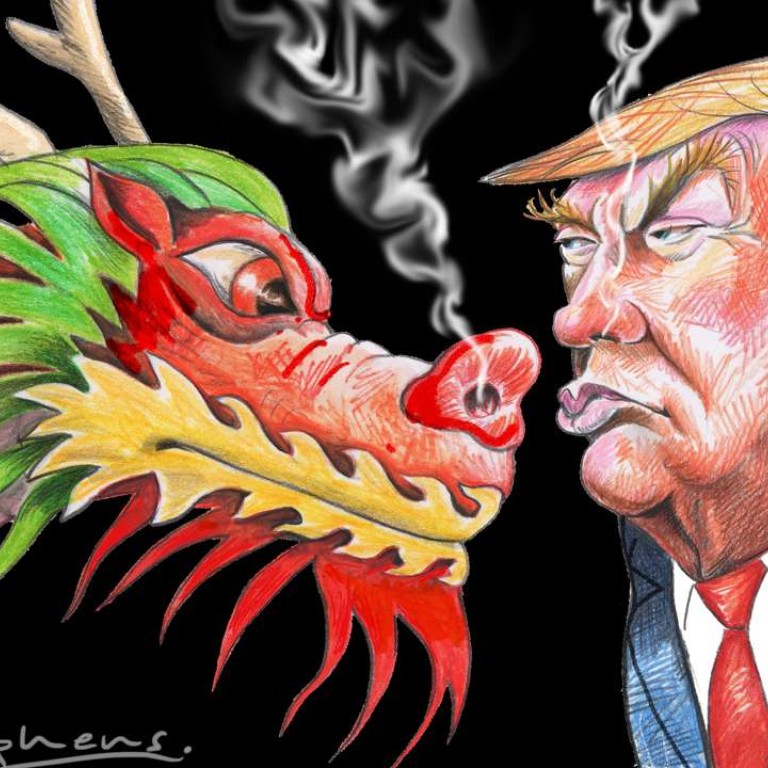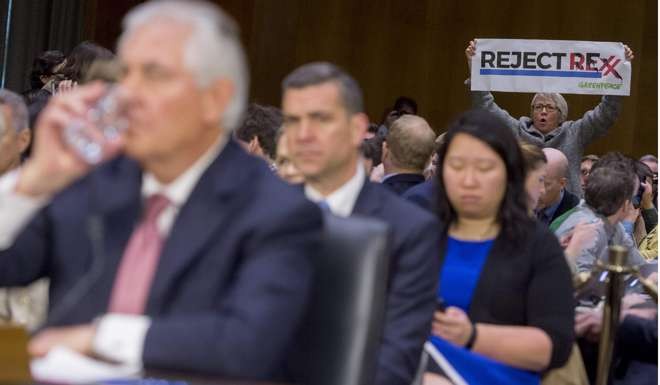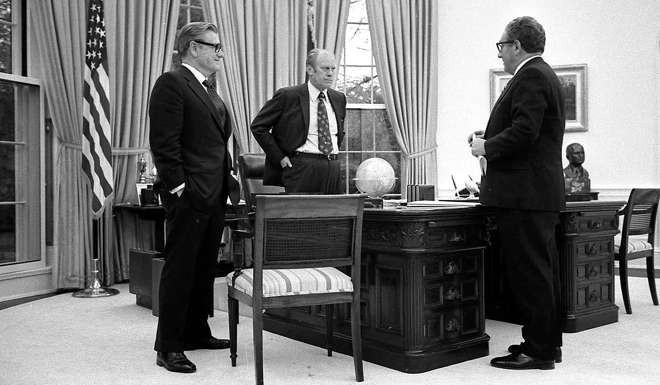
Just how far will reckless Trump push China?
Gordon H. Chang says a review of the US president’s words and deeds in the run-up to him taking office suggests a worrying lack of an overarching rationale, and we should brace for some rough times
Watch: What cards can President Trump play against China?
Trump himself probably doesn’t think about all of this very seriously or coherently. That can be said about much of his public behaviour and his tweets, and not just about China. Trump exhibits all the traits of opportunism and hype befitting a self-promoting television personality.
The world must beware the cult of Trump
And that’s the problem: who knows what he’ll do next?
The chances are that Sino-US relations will enter a tough, even dangerous, period. It is unlikely that anyone in his administration will say, as president Barack Obama and his secretary of state Hillary Clinton did, that the US-China relationship was the most important bilateral relationship in the contemporary world, and that the two – one an established great power, the other a rising great power – had to find a way to get along without serious conflict.
Remembering Nixon, a Trump White House can only be bad for China-US ties
George W. Bush appears to be a Wilsonian multilateralist in comparison to Trump
During his campaign, Trump declared he would “make America great again” and though it is unclear what that actually means, he has presented himself as an unabashed great-power nationalist, uninterested – even hostile – to the idea of a multipolar, globalised world. He expresses hostility towards the idea of trying to craft a cooperative international order, as all his predecessors had tried to do to varying degrees since the end of the cold war. George W. Bush appears to be a Wilsonian multilateralist in comparison to Trump.
All indications point to domestic policy as Trump’s focus of attention. He exhibited astonishing ignorance in foreign policy during the campaign. His appointments so far, however, suggest that military and conservative points of view will be strongly represented in his administration.
In contrast, his pick for secretary of state, Rex Tillerson, has never had any experience in government policymaking; just like Trump himself. Trump is the first president in American history never to have been elected to any public office or to have served in the military high command. The Trump-Tillerson foreign affairs team is the least prepared in modern American history.
With their threats to China, Trump and Tillerson are making rookie blunders that will only hurt US credibility


Other presidents whose careers largely centred on domestic matters all had as their first secretary of state some of the most tested and respected figures in public life. Just think of Harry Truman and Dean Acheson; John F. Kennedy/Lyndon Johnson and Dean Rusk; Gerald Ford and Henry Kissinger; Jimmy Carter and Cyrus Vance; Ronald Reagan and Alexander Haig/George Shultz; Bill Clinton and Warren Christopher; George W. Bush and Colin Powell; and Obama and Hillary Clinton.
As for China’s attitude towards Trump? As with the rest of us, Beijing is waiting to see how things will develop. But, an increasingly assertive China does not easily suffer threats or bluster. It quickly and sharply rebuked Trump and Tillerson, reiterating its longstanding positions.
This early “Trumping China” does not bode well.
Gordon H. Chang is professor of history at Stanford University and author, most recently, of “Fateful Ties: A History of America’s Preoccupation with China”
